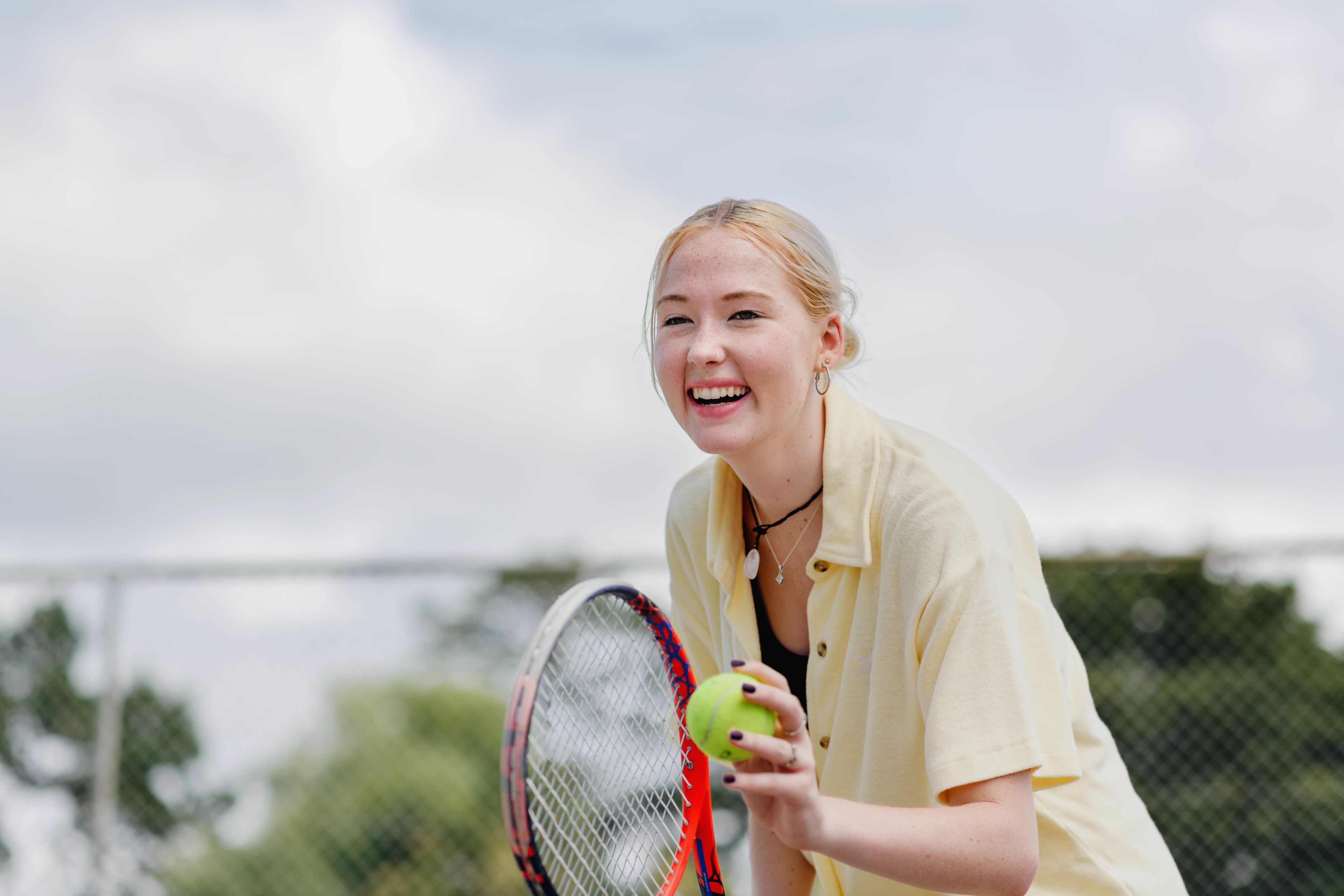
sponsored content with Sport NZ

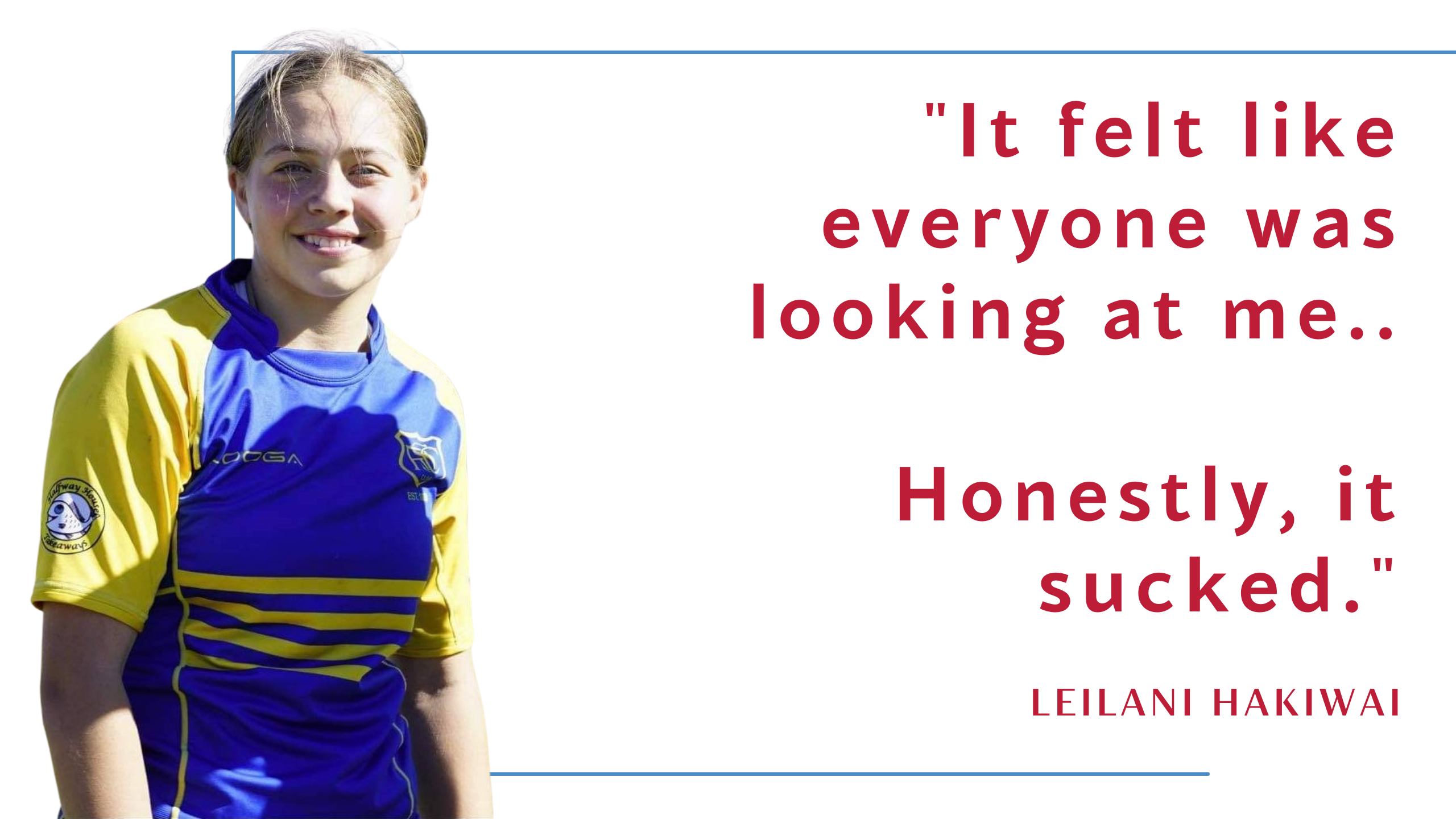
As a child, Leilani Hakiwai remembers constantly being on the move, playing as many different types of sport as possible.
She didn’t care what she played, she loved being part of the action. But things changed dramatically once she reached her teenage years.
“I stopped taking part because I didn’t want to be judged. It felt like everyone was looking at me and I didn’t want to be the one that was standing out and people were making fun of.
"Honestly, it sucked.”
Leilani isn’t the only one.
Research shows young women gradually reduce their participation in physical activity during their teenage years.
While they often want to be active, young women can be weighed down by the pressure, judgement and expectations that are often part of organised physical activity. It’s just not fun anymore.
Instead, they want to be active their way. Whether that’s running in their neighbourhood, doing on-demand online workouts at home, or shooting hoops with friends, they look for ways to be combine fun and friendship, with keeping fit.
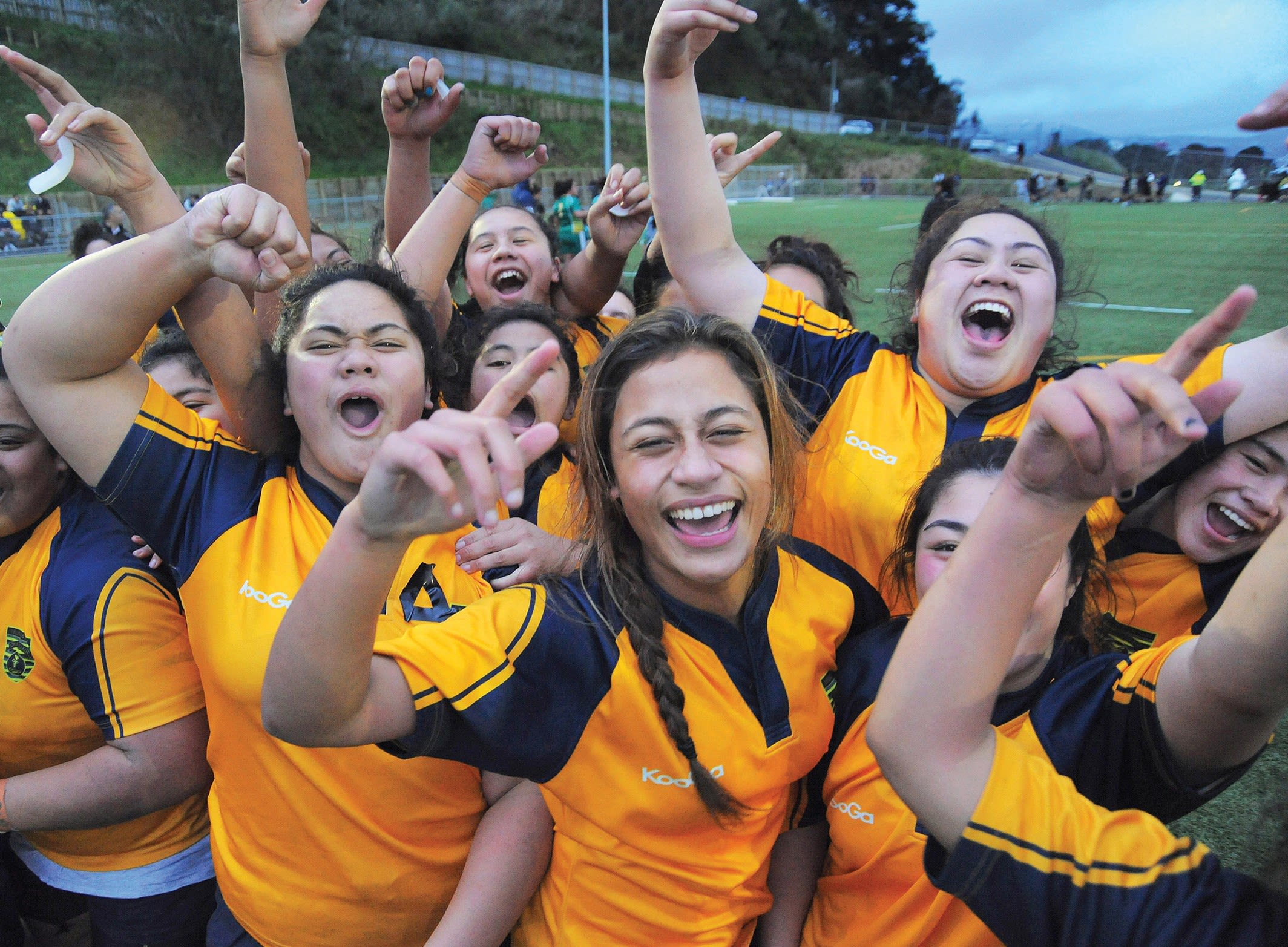
Wellington East Girls College rugby team celebrating a win
Wellington East Girls College rugby team celebrating a win
Globally the sporting world is rethinking what it means for young women to be active in 2022. The UK’s This Girl Can campaign has challenged the conventional idea of what exercise looks like and celebrates active women doing their thing, their way.
Research tells us:
- 90% of young women want to be active
- 96% of young women understand why physical activity is important for them
- Young women’s confidence decreases during their school years. Agreement with the statement ‘I feel confident to take part’ declines from 76% at age 12 to 53% at age 17
- Young women feel that judgement is prevalent in every facet of their lives. Three in four young women are concerned about how they look every day
- 55% feel judged on their appearance by others when they go out
A "weight off the shoulders"
By the time she was in her mid-teens, life was very challenging for Leilani and her confidence and motivation was at an all-time low.
Although people constantly told her to get out and join a team, the idea of opening herself up to the pressures of fitting in and performing competitively each week was terrifying.
It was only when her aunty and uncle finally persuaded her to come along to their gym and she started working out in a casual, accepting atmosphere, that she realised what she’d been missing.
“After a class I just felt so good. It was like a weight literally fell off my shoulders,” she says. “It’s about finding what makes you happy and getting in a mental space where you don’t care about what other people say. You just keep doing what makes you happy.”
While Olympic-medal-winning pole vaulter Eliza McCartney may be at the other end of the activity spectrum, she says she would never have become a professional athlete if having fun wasn’t behind all her sporting experiences. Core memories of her greatest sporting achievements include the camaraderie with other athletes.
“Becoming a professional athlete wasn’t my career choice when I was younger. I got into elite level by continuing to do something I really enjoyed doing. What it really was about was training in a group of people l got along with. It definitely started off with a strong enjoyment factor,” she says. “It’s not just about the physical activity, it’s about social interaction and your mental health really benefits from that.”
Although Eliza never entertained the idea of giving up sport, she remembers becoming increasingly aware of the opinions of others and increasing social expectations that governed how women in sport should and shouldn’t behave.
“I remember at one stage I didn’t want to try too hard in certain exercises because I didn’t want to get too muscly.”
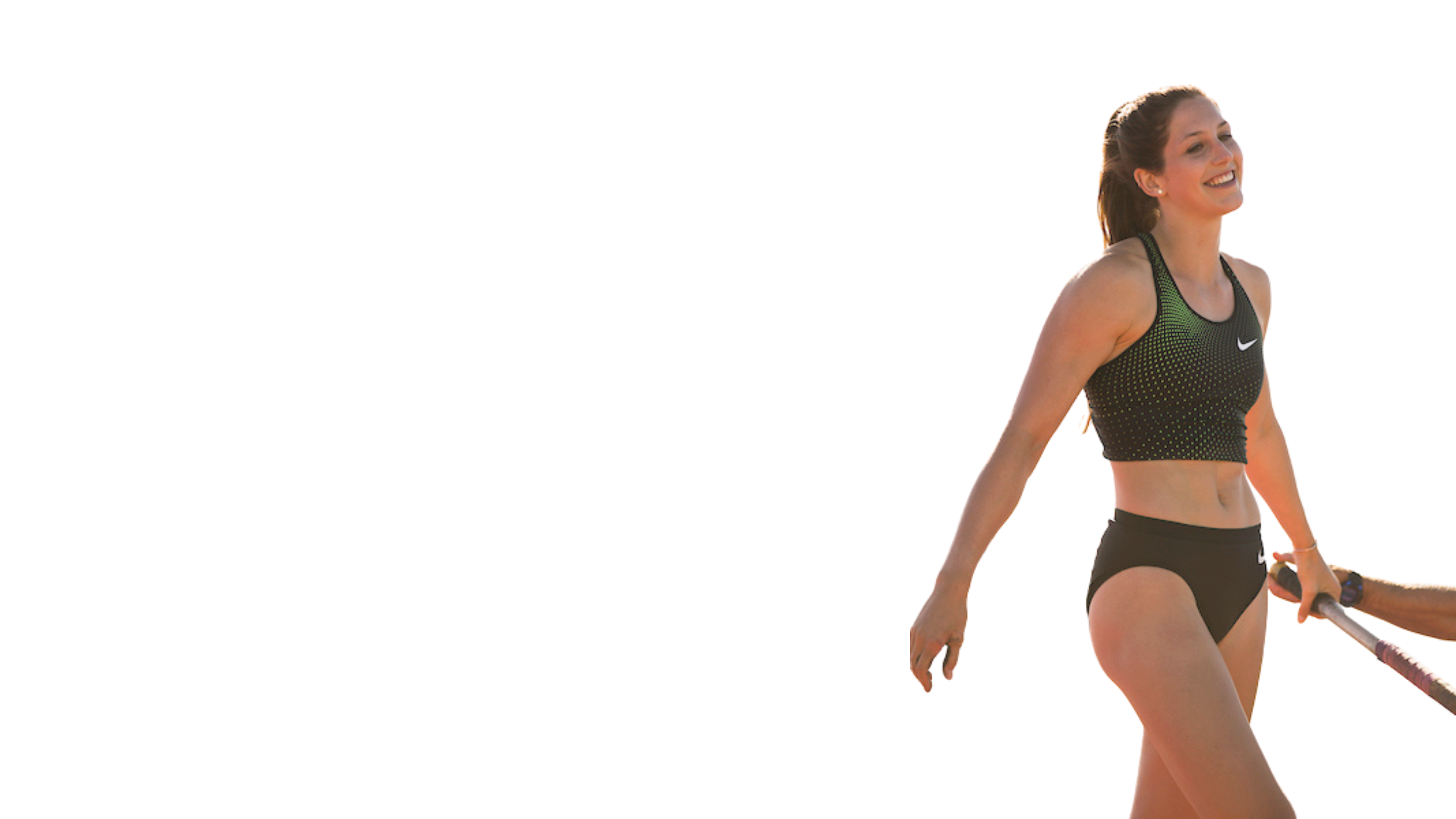

Providing the 'space' to be active
To understand what prevents young women from taking part in physical activity, we need to understand what’s going on in their lives and how much their world and experience is changing, says psychologist Kathryn Berkett (pictured).
The teenage years are all about transitioning to independence as both the brain and the body go through intense changes.
Physical movement provides an important balance during these changes, as young people move away from the care and authority of their parents and towards their peer group, which becomes increasingly important.
“Physical activity is always good,” says Kathryn. “We produce good chemicals in our brains when we exercise. But for me as a neuroscience trainer, some of the most important things about sport are the social things you learn. At this age we must learn how to work in a group, how to negotiate, how to take turns, how to have and be a role model. These are all massively important for the maturation of our social abilities and why I support sports so much.”
While there will always be young women who love the competitive side of sport and are well-served by traditional activities, Kathryn says there’s a lot of movement in the sports arena to remove the need to be completely competitive and to give young people some ownership over their physical activity.
“We have to ask what they need in the space. For girls it’s about creating a space where they can be connected as a group rather than competing against each other. We need to create more opportunities where they have autonomy.”
Sport New Zealand Chief Executive Raelene Castle (pictured) agrees there’s a need to empower young women to call the shots when it comes to how and when they are physically active.
“We’d like to see more opportunities available to young women to participate in the way they want to participate, with more flexibility, in uniforms they feel comfortable in and sometimes in girl-only environments so they feel comfortable with their peers.”
Raelene says informal and non-traditional activities like skateboarding, walking, learning dances from TikTok and playing games at the beach need to be acknowledged as beneficial.
“Our world is changing and Covid-19 has changed it even further. We’re doing more online workouts, more walking the dog, and more biking locally.
"Parents and caregivers need to be more open minded to the fact it doesn’t have to be competitive to be beneficial. Let’s focus on young women enjoying activities so that they are motivated and inspired to keep going.”



"Girls just want to have fun"
For a group of young women in Canterbury, Wednesday afternoons are all about trying something new and having fun with their friends, thanks to the Not-So-Sports Club organised by the Forward Foundation.
The registered charity is committed to empowering girls through sport and recreation. Run alongside the organisation’s other programmes, the Not-So-Sports Club allows participants to have a go at anything from Zorb balls to paddle boarding.

Not-So-Sports Club with Programme Manager Kim Lazor
Not-So-Sports Club with Programme Manager Kim Lazor
Programme Manager Kim Lazor says the club is a way for girls who aren’t interested in organised sport to keep active, while benefiting from the social advantages of being with others their own age.
“We say not all girls want to play traditional sports and they don’t have to. The club is a diverse active recreation club that focuses on participation and – most importantly – fun,” she says.
“Girls want to be with their friends and have fun. Many of them don’t want the pressure of being the best at the sport, they just want to go out there and do something. They don’t care if they’re winning.”
Kim says the girls-only environment is key, with leader roles often filled by university students who double as female mentors.
“The girls have told us they get embarrassed being around boys when they are doing sport, especially when they aren’t good at it and don’t want to be judged,” she says. “I think some girls feel if they’re not good at something already, they can’t join in. This club allows them to participate in a safe environment.”
Raelene Castle says with the numbers showing that 90 percent of young women want to be active, the challenge for parents is to recognise that physical activity takes multiple forms. It’s an important part of a healthy lifestyle, but there are many ways to be physically active.
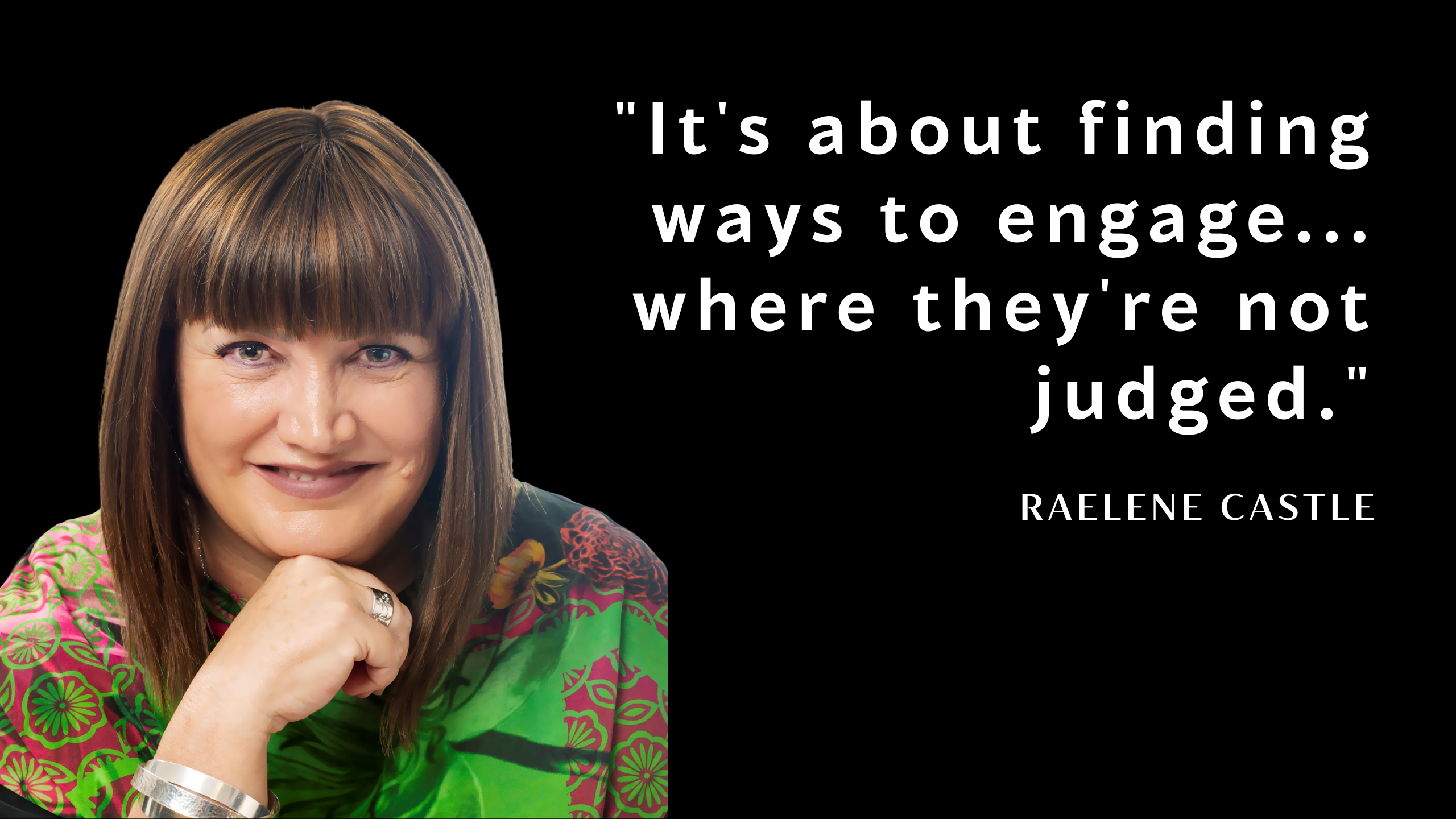
“It’s about finding ways they can engage and can spend time with their friends in an environment where they are not judged. Surfing, jogging, power walking, or doing an outdoor gym class together are just some of those ways. The research is telling us they want to do it their way, on their terms.”
Now 17, Leilani can’t imagine her life without physical activity and is grateful for the encouragement she received. She works at Sport Hawkes Bay as the Kaiwhakahaere He Oranga Poutama Ki te Matau a Maui, (Māori Games Coordinator), is a fitness instructor, and has rediscovered her love for team sport.
“Being active is my safe zone where I get a feeling of happiness, especially when times are tough,” she says. “You need people to support you and help you find what you really want to do.”
To learn more about Sport NZ’s initiative to better support young women in active recreation and sport, visit www.itsmymove.org.nz




